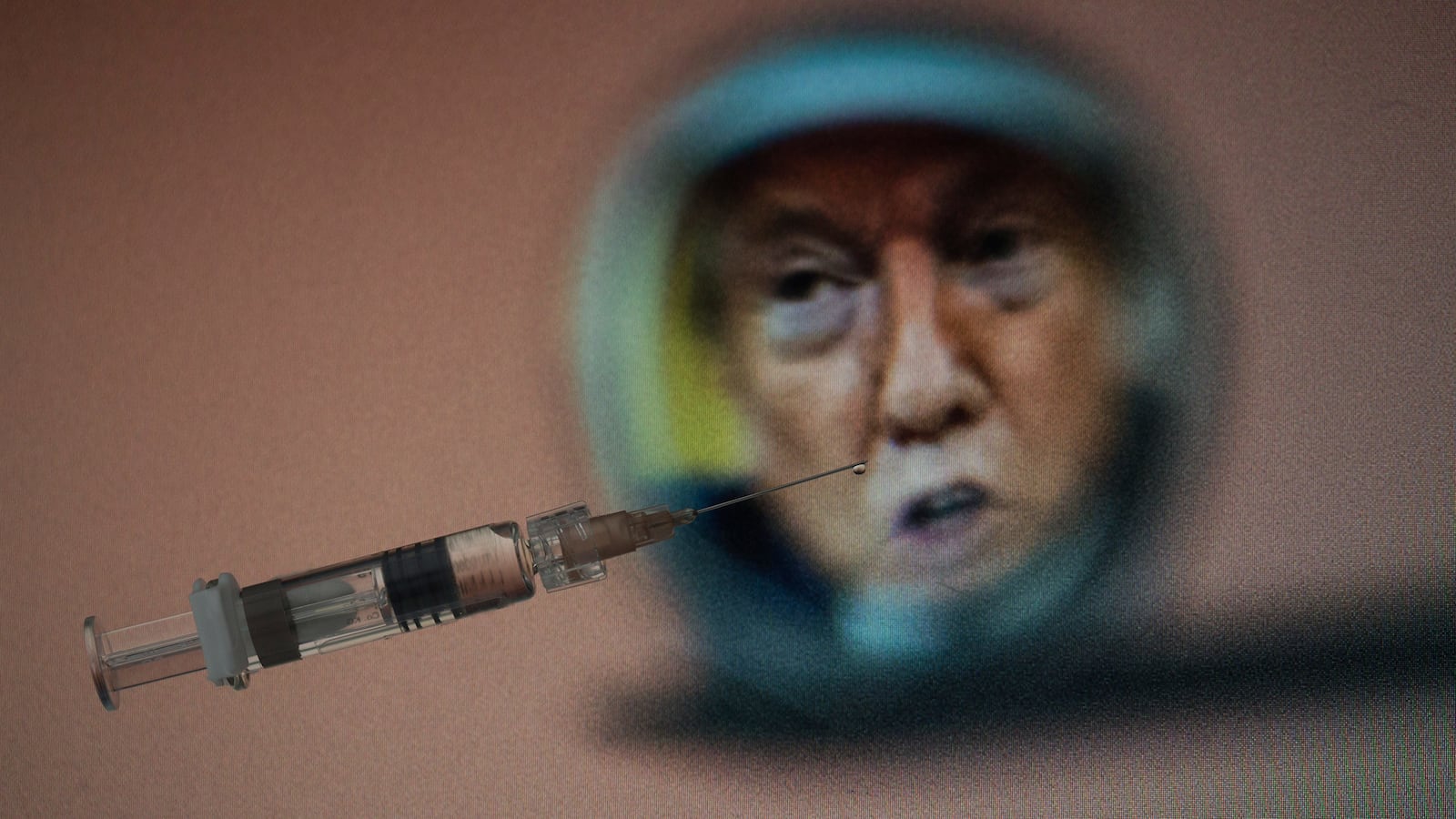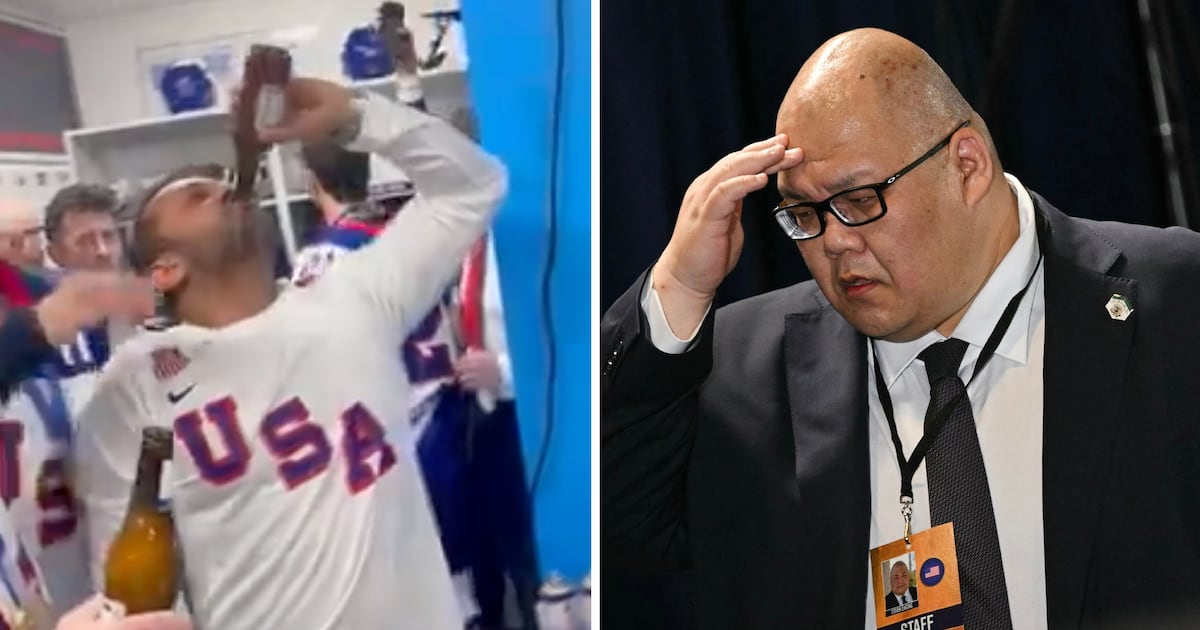Moments after Democratic senatorial candidate Cal Cunningham said during a Monday night debate that he would be “hesitant” to take a COVID vaccine if it was approved by end of the year, Republicans were labeling him an “anti-vaxxer” and “irresponsible.”
“I’m going to ask a lot of questions,” Cunningham said. “I think that’s incumbent on all of us right now with the way we’ve seen politics intervening in Washington.”
Sen. Thom Tillis (R-NC) quickly responded, "We just heard a candidate for the U.S. Senate look on camera and tell 10 million North Carolinians he would be hesitant to take a vaccine. I think that's irresponsible."
After the debate, Cunningham sought to clarify his remarks, telling reporters in a virtual spin room, “The point that I'm making is that we need to go through that due diligence.”
“We need to make sure that our public health professionals, our medical professionals, the FDA, and the professionals and scientists there sign off in this,” he said. “If they sign off, free of politics, then I'll take that vaccine.”
But his detractors were already off to the races.
“We thought we knew why Cal Cunningham was being systematically hidden from public scrutiny by his DC handlers, but we didn't know he'd go *this* far off the deep end,” began a release from the Senate Leadership Fund, with the subject line “Cal Cunningham Goes Full Anti-Vaxxer in First North Carolina Senate Debate.”
Matt Gorman, a Republican strategist, said Cunningham—who has led Tillis in most recent polls—gave “Republicans a foothold for the final stretch.”
“This attack is squarely aimed toward swing voters,” Gorman said. “There's now a Cal Cunningham-sized hole in the wall. All the other candidates will notice and adjust their answers accordingly. If they get caught on this question, that's on them.”
Like most things in the Trump era, the hunt for the vaccine for the coronavirus the president knowingly downplayed to Americans has become mired in politics and tied up in Trump himself.
An NBC poll released on Tuesday showed 56 percent of respondents do not trust the president’s comments about the vaccine, with only 26 percent saying they do.
This has left Democrats to walk a fine line between expressing confidence in the medical and scientific community working toward a vaccine and the words of the man at the top of the bureaucracy in charge of making sure that it’s safe.
“This is not something that is campaign-ending,” said one Democratic strategist who spoke on condition of anonymity to speak candidly about the Cunningham race. “But it is a red flag for other Senate candidates to get this answer right.”
Sen. Kamala Harris (D-CA) successfully walked that line in an interview earlier this month, telling CNN’s Dana Bash, “I will say that I would not trust Donald Trump and it would have to be a credible source of information that talks about the efficacy and the reliability of whatever he’s talking about.”
Harris said she worried that scientists and medical experts would be “muzzled” and “suppressed” by the administration in the rush to get a vaccine released before election day.
The messenger mattered, Harris said, noting that she felt more comfortable hearing those assurances from someone like Fauci, who “put the public health of the American people as the highest priority in terms of his work, and his reputation and his priority.”
“Yes. I trust Dr. Fauci,” Harris said.
That answer drew fire from the president himself, who went off on Harris during a Labor Day press conference.
Biden and Harris “should immediately apologize for the reckless anti-vaccine rhetoric that they are talking right now, talking about endangering lives and undermining science,” Trump said.
“Undermining science” when it comes to vaccines hasn’t always been such a concern to Trump. He has repeatedly and incorrectly linked vaccines with autism and even suggested creating a commission about the safety of childhood immunizations led by prominent anti-vaxxer Robert F. Kennedy Jr.
During a measles outbreak in 2019, the president was silent for months before telling Americans to “get their shots.”
The day after Trump’s Labor Day rant, former Vice President Joe Biden was even clearer about the campaign’s position on the vaccination, accusing Trump of undermining public confidence by promising a vaccine by Election Day.
“I’m worried if we did have a really good vaccine people would be reluctant to take it. So, he is undermining public confidence,” Biden said of the president. “But pray God we have it. If I could get a vaccine tomorrow, I’d do it. If it cost me the election I would do it. We need a vaccine and we need it now. We have to listen to the scientists.”
Josh Schwerin, senior strategist and communications director at Priorities USA, said as long as Democrats are clear that it’s not the vaccine that’s at issue, it will not hinder Democrats in the 2020 election.
“It’s not about a vaccine,” he told The Daily Beast. “It’s about Donald Trump and his lack of credibility.”
That credibility was the topic of conversation in a hearing in the Senate Health, Education, Labor, and Pensions Committee last week, where top government scientists expressed concern that misinformation and politics could slow the nation’s recovery.
After listing several of the administration's missteps, including, but not limited to pushing conspiracy theories about the Centers for Disease Control and the number of people who have died as a result of COVID-19, Sen. Elizabeth Warren (D-MA) asked whether Trump’s “actions encourage public trust in vaccines and increase the number of people likely to get the vaccine, or do they discourage Americans from getting vaccinated for COVID-19?”
Avoiding a direct comment on Trump, Dr. Francis Collins, director of the National Institutes of Health, said his staff would work hard to get the public facts about how the decisions are being made until they have a safe vaccine.
“What is the evidence that anybody would want to look at in making their own decision, discounting whatever political words they heard, whatever conspiracy theories popped up in their Facebook feed, and actually, saying, OK, let’s see what the doctors say,” he said.
He concluded, “I just hope Americans will take—choose to take—the information they need from scientists and physicians, and not from politicians.”







